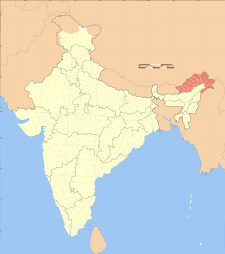I suppose I must be living in the past, as my view of how the political process should work is that a political party devises a programme of prospective action in the form of a manifesto, and then
broadly at its own expense sells this idea to the electorate and if it gains power acts upon it.
However, judging from a report by the ippr (sic), this is not the done thing at all. Rather, an incumbent government should decide upon a course of action, and then spend public money to move public opinion, in this case on national road pricing.
I’ll be damned if I will put money into the pockets of the soi-disante ‘leading UK progressive think tank’, so instead I’m making do with the press release précis of the oh so punningly named ‘Steering Through Change’ rather than forking out ten quid for it. Doubtless there are any number of fiskable details in the main report, but here are some of the elephant traps evident in the methodology:
“The research shows that while more than 90 per cent of people see congestion as a serious problem less than 40 per cent said they supported road pricing as a solution”.
However, the polled group were told: “A sample of 1150 people were given a description of road pricing that claimed it would replace Vehicle Excise Duty (VED). Three additional samples of between 100 and 150 people were told that it would replace fuel duty, VED and fuel duty, or neither tax”. I do not have a car, so will make do with the 2005 figures of road tax varying from £55 to £165. Given that the London road pricing scheme is charging £8 a day, anyone thinking that road pricing would be exchanged in a straight swap for road pricing fees, and that it would only cost £165 rather than somewhere nearer £3000 for a year’s daily driving would have to be of a level of naivety that probably has them if not actually believing in Father Christmas, then certainly that horoscopes are scientifically valid, Elvis lives and that wrestling is not fixed. However, how many people outside the South East would know how much the ‘congestion charge’ costs? I could not hazard a guess at the cost, if there is one, of crossing the Mersey or the Forth bridge. And still 40% support road pricing….
There’s more: “ippr held six focus groups with participants who drive everyday or nearly every day and who stated they were either 'very satisfied', 'quite satisfied' or 'neither satisfied nor dissatisfied' with their local public transport. These groups were held in Sale, Birmingham and Harlow”. So, another *hugely* representative group of people. Birmingham is the second city and has commuter rail lines, Sale has a tram network, and Harlow is basically part of London sprawl. So we are not talking about places with a once a week bus service, and whatever proportion of Brummies, Saleites and Harlovians were ‘quite unsatisfied’, ‘very unsatisfied’ were ignored. As presumably were the contemptible ‘don’t know’ contingent.
Part of the ippr’s grand scheme of recommendations is that the government should “Support local schemes through Transport Innovation Funds and public transport governance reform”. Dizzy has looked at this previously. It is notable that “The Transport Innovation Fund (TIF) will be used to tackle congestion and to improve productivity. The TIF will provide up to (my emphasis) £200m per year from 2008/09 until 2014/15 to support suitable demand management schemes developed by local authorities”. £200m? That’s what setting up the London scheme cost, and this figure is supposed to cover Tyne & Wear, Greater Manchester, the West Midlands, the East Midlands cities and Bath/Bristol. And five other smaller places….
This, however, is my favourite recommendation: “Establish a new national stakeholder group, with an independent chair, of experts, special interest groups and critical friends to address public concerns”. So, six figure salaries, bloated expense accounts and junkets all round for Labour party sympathisers, topped off with peerages and knighthoods a few years down the line.
My own position on road pricing is that I might consider it worth debating with preliminaries of the data collected being wholly anonymous and fuel duty etc being scrapped.
Over to you.
Labels: Wonks







